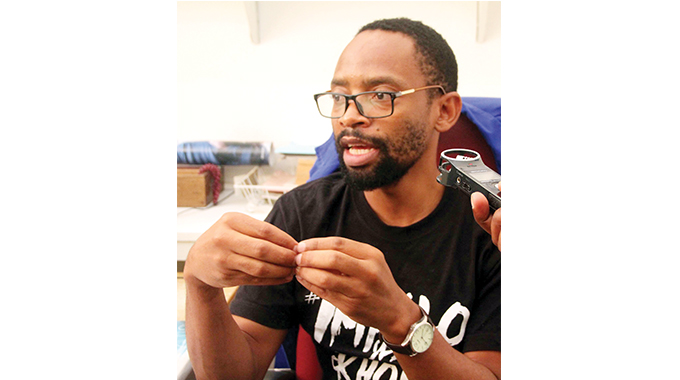Bulawayo closing in on herd immunity

Thandeka Moyo, Health Reporter
BULAWAYO is striving towards becoming the second city in the country after Victoria Falls to achieve Covid-19 herd immunity as more people are coming forward for inoculation.
Herd immunity is achieved when most of a population is immune to an infectious disease.
This provides indirect protection to those who are not immune.
The province is now recording an average of 2 000 vaccinations daily- up from a few scores when the programme was rolled out in March this year- as it continues to increase the number of stations where people can access the lifesaving vaccine.
Numerous campaigns by the Ministry of Health and Child Care are overcoming negative social media reports seeking to discourage people from getting inoculated.
As of Saturday, Zimbabwe had recorded 38 260 cases, 35 620 recoveries and 1 568 Covid-19 deaths since March last year.
Since the outbreak of the pandemic, Bulawayo has recorded 5 683 cases, 5 336 recoveries and 223 deaths.
The city has 124 active Covid-19 cases.
On Saturday, 13 400 people received jabs countrywide, bringing cumulative numbers for first dose to 428 135 while 6 557 people received their second dose bringing cumulative vaccinations to 92 164.
Zimbabwe is using four types of vaccines — Sinovac and Sinopharm both from China, Sputnik V from Russia and India’s Covaxin.
The vaccines were developed using the traditional method, by means of an inactivated virus.
In an inactivated vaccine, the virus — in this case the coronavirus causing Covid-19 — is killed or modified in such a way that it is unable to replicate.
It cannot cause disease and is, therefore, suitable for those with a compromised immune system.
The inactivation is usually done using heat, radiation or chemicals to destroy the pathogen’s genetic material, which stops it from replicating.
While inactivated vaccines can trigger a strong immune response, they usually require a person to have booster shots to ensure ongoing protection.
Vaccines have been useful in averting many deaths in Zimbabwe since time immemorial for killer diseases like polio, tuberculosis, measles and rubella.
The country has also introduced a vaccine against the human papilloma virus (HPV) in girls to reduce their risk of cervical cancer which remains one of the killer diseases among women in Zimbabwe.
Bulawayo provincial medical director Dr Welcome Mlilo said as of last Thursday, 46 700 people had received their first dose in the city.
He said a total of 8 321 residents had also received their second vaccination.
“Vaccine uptake has improved in the city as more people continue coming forward and as more centres open up. Anyone who is above 18 can go to any of these centres and they will be vaccinated,” he said.
“As of 29 April, we had a cumulative of 46 700 of the first dose and 8 321 for the second dose. On average we are recording 2 000 inoculations daily in Bulawayo and we are hopeful that we will improve as in the olden days we used to record a few hundred per day.”
Dr Mlilo says there are about 33 centres scattered around the city which residents can utilise.
“Let’s take up vaccines which will protect us and others in the communities. Yes, we do have others who due to conditions cannot take the vaccines but those who can please get vaccinated and save lives,” he said.
“We have enough stocks in Bulawayo but in a few instances, we have stocked out due to logistical problems. We also expect an additional 5 000 doses from other areas since we have a higher uptake compared to other provinces.”
Health expert Professor Solwayo Ngwenya warned that the gains made in vaccinating more people can be easily reversed by the attitude that members of the public now have on Covid-19.
He said the decreasing new cases and deaths were encouraging but on the other hand misleading people into ignoring life-saving measures to prevent the spread of the virus.
“I think we should take note and get vaccinated in numbers, that will help us contain Covid-19 which may spiral into a deadly third wave if we are not careful. People are so relaxed as they see our figures going down yet they do not realise that their careless behaviour may cost us big time in the next coming weeks,” said Prof Ngwenya.
“We continue to remind them that the battle has not been won yet hence it is important for us to be careful of the looming third wave which may cause more havoc.” — @thamamoe.











Comments